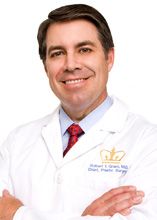Article
How to Capitalize on the Global Cosmetic Surgery Boom
Author(s):
As the popularity of plastic surgery continues to rise rapidly across the globe, it is time to ensure we are capitalizing on this opportunity by positioning ourselves as international patient-friendly cosmetic surgeons.

Although the number of cosmetic surgeries performed each year in the United States has dramatically increased, the US is not the only country reveling in the plastic surgery boom.
According to the most recent report from the Dubai Health Authority (DHA), more than 98,000 men and women sought out surgical and non-surgical cosmetic procedures at the agency’s main facility last year, which is double the number of procedures it recorded in 2013. South Korea, Greece, Italy, and Brazil have also reported an incredibly high amount of cosmetic surgeries that far exceeds the number of those performed annually in the United States.
However, the most popular cosmetic procedure varies from country to country. In the United States, liposuction, breast augmentation, eyelid surgery, and nose surgery — in addition to injectables like Botox — lead the pack, but there is a completely different set of desired cosmetic procedures in Dubai that are less surgery-oriented.
Although many prospective patients look internationally to achieve their aesthetic goals, the criteria for finding a qualified plastic surgeon is the same regardless of whether patients are located in the United States or Dubai. As a result, positioning your practice to attract foreign cosmetic patients is more important than ever. Here, I have outlined the best ways to capitalize on the increasing international demand for plastic surgery.
Build a practice-specific website
When considering a plastic surgery procedure, most patients begin their research online, relying on websites to learn what the surgery entails. Since prospective patients also use the Web to find prominent plastic surgeons, it is essential to build and maintain a website dedicated to your practice that highlights the services you offer, provides patient testimonials, showcases before and after photos, and lists your credentials.
Maintain a strong third-party review website presence
In addition to having a website for your practice, you should also maintain a profile on all of the well-known third-party plastic surgery and doctor referral websites. Patients regularly use RealSelf, Healthgrades, the Plastic Surgery Channel, and even Yelp to obtain valuable information about the industry’s experts, so having a robust presence on these websites is a great way to secure “airtime” in front of prospective clients.
Offer travel accessibility
It is important to convey that you are accustomed to working with international patients, and including lodging and travel recommendations on your website is the best way to do so.
Personally, I have taken this a step further and developed a relationship with the prestigious Pierre Hotel in New York City, which affords my out-of-town patients a special hotel rate, healing-focused in-room dining menu, and 24-hour on-call medical service. Establishing this hotel partnership has further positioned my practice as an option for international patients who are looking to undergo plastic surgery in the US.
--
As the popularity of plastic surgery continues to rise rapidly across the globe, it is time to ensure we are capitalizing on this opportunity by positioning ourselves as international patient-friendly cosmetic surgeons.
Robert T. Grant, MD, MSc, FACS, is Chief of the combined Divisions of Plastic Surgery at New York-Presbyterian Hospital-Columbia University Medical Center and New York-Presbyterian Hospital-Weill Cornell Medical Center. He is also Associate Clinical Professor of Surgery in the College of Physicians and Surgeons at Columbia University and Adjunct Associate Professor of Clinical Surgery at Weill Cornell Medical College. For more information about Dr. Grant or to contact him, visit his website at www.robertgrantmd.com.





